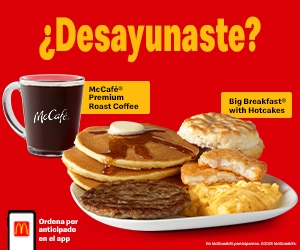Latest
-
 Villanueva-Backed Law to Protect Access to Illinois Courthouses December 11, 2025
Villanueva-Backed Law to Protect Access to Illinois Courthouses December 11, 2025 -

-

-

-

Popular
Tags
Artistas Adolescentes Aprenden el Valor de un Arduo Trabajo
Artists Nationwide
Brazilian Students Tour Kirie Water Reclamation Plant
Challenges of Returning to School in Adulthood
Chicago
Chicago Air and Water Show
Chicago CPS
Chicago Dream Act
Comparta su Historia
CPS
Cultura Latina
Delicious Salad Meals
Dream Act
Dream Act chicago
Dream Relief
Dream Relief Chicago
El Alma de la Fiesta
Ending Summer on the Right Foot
Ensaladas sencillas y deliciosas como plato principal
Estudiantes Brasileños Recorren la Planta de Reclamación de Agua Kirie
Feria de Regreso a la Escuela de la Rep. Berrios
Festival Unísono en Pilsen
Grant Park Spirit of Music Garden
ICIRR
ICIRR Receives Criticism Over Dream Relief Day
ICIRR Recibe Críticas
Jose Cuervo Tradicional
José Cuervo
José Cuervo Tradicional Celebra la Cultura Latina e Inspira Artistas a Nivel Nacional
Latin Culture
Los Retos de Volver a la Escuela Cuando Adultos
Meijer Abre sus Puertas en el Distrito de Berwyn
Meijer Opens in Berwyn District
orth side Summer Fest on Lincoln Ave
PepsiCo Foundation Apoya Futuros Periodistas Hispanos
PepsiCo Foundation Supports Future Hispanic Journalists
Share Your Story
Show Acuático y Aéreo
Simple
StoryCorps
storycorps.org
Teen Artists Learn the Value of Hard Work
Terminando el Verano con el Pie Derecho
Unisono Festival in Pilsen
‘El Chente’






Venezuela’s Agricultural Agony
by Daniel Nardini
Just when it cannot seem possible for Venezuela’s situation to become so much worse, it does. As food shortages spiral out of control, Venezuela’s agricultural sector cannot provide any food for the hungry people in the country’s cities. Why? Two factors are working here. First, the late Venezuelan President Hugo Chavez confiscated the properties of many former agricultural landlords and gave it to ordinary people coming from the cities who wanted land and a new start in life. The problem is that these people have no experience in how to grow food, what to use for Venezuela’s rich soil, and really have received no help from the government anyway for what they need to farm. So a great deal of Venezuela’s farm lands lay fallow as people in its cities starve.
And second, those Venezuelans who were able to keep their farms have found the government trying to strangle their business and their livelihoods. Venezuelan farmers cannot import enough feed for their chickens, and cannot get enough fertilizer because the government is hoarding all of the hard cash for either itself or paying off the country’s debts (the national currency, the Bolivar, has lost 99 percent of its value). The government’s socialist price controls mean that Venezuelan farmers cannot get what they need, so therefore they cannot make any money to put back into their farms. The result? Their cows cannot produce much milk, their pigs are getting thinner, and their chickens either produce fewer eggs or no eggs at all. And that is going on the premise that farmers are able to keep their livestock at all. Both criminal gangs and city squatters who settle on lands owned by the farmers (and seemingly with the blessing of the Venezuelan government) are busy stealing what the farmers have left. So if they steal what the farmers have, then how can the farmers produce?
So Venezuela’s agony continues, with no let-up in sight. Sadly, Venezuelan President Nicolas Maduro remains in power—backed up by the Venezuelan military, backed up by Cuban secret police and other Cuban government agents, and by those Venezuelans who are still loyal to the United Socialist Party of Venezuela.